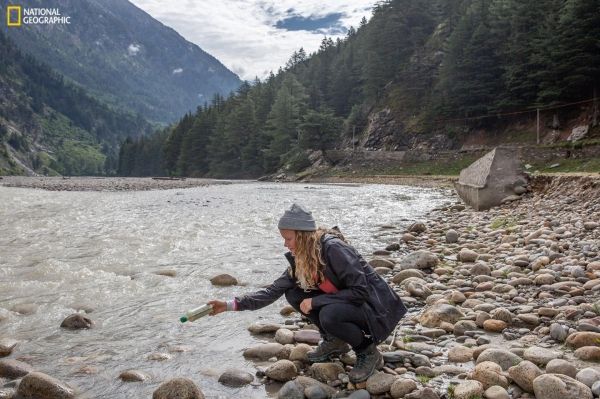Researchers put GPS and satellite tags in plastic bottles in the Ganges and the Bay of Bengal.
The maximum distance tracked was 2,845km (1,768 miles) in 94 days.
The study, led by researchers from the University of Exeter and ZSL (the Zoological Society of London), was conducted as part of the National Geographic Society's Sea to Source: Ganges expedition.
"Our 'message in a bottle' tags show how far and how fast plastic pollution can move," said lead author Dr Emily Duncan, of the Centre for Ecology and Conservation on Exeter’s Penryn Campus in Cornwall.
"It demonstrates that this is a truly global issue, as a piece of plastic dropped in a river or ocean could soon wash up on the other side of the world."
Read more at: University of Exeter
Emily Duncan releases a bottle. (Photo Credit: Sara Hylton/NGS)


